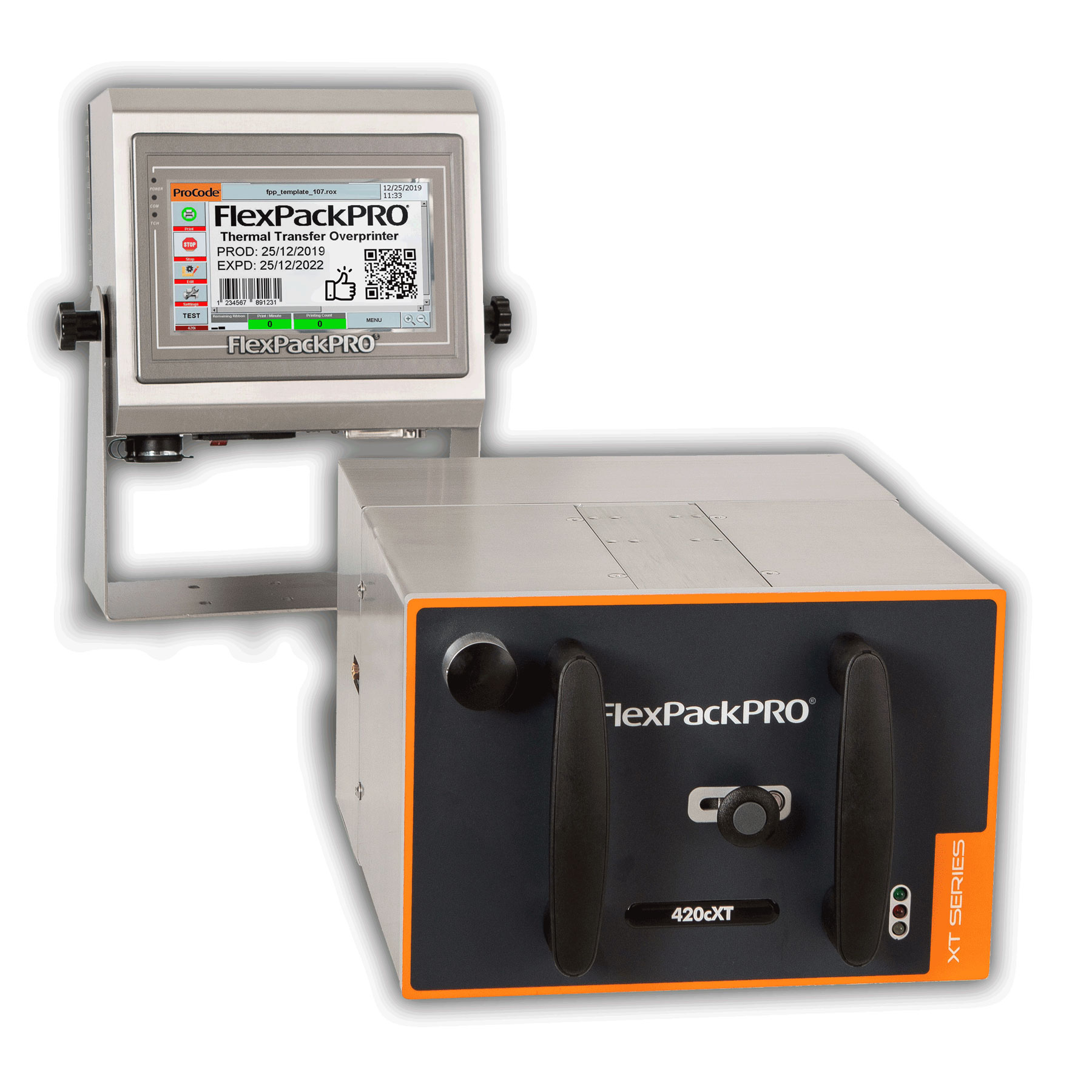Food safety is paramount for egg producers. The ability to effectively communicate traceability data and important information helps ensure producers are in compliance with safety regulations.
 Recently, the Markoprint thermal inkjet printer received an OEM egg grading machine certification for egg coding. The printers come equipped with FDA-approved inks that are food grade.
Recently, the Markoprint thermal inkjet printer received an OEM egg grading machine certification for egg coding. The printers come equipped with FDA-approved inks that are food grade.
Many countries world-wide already require standardized egg coding. Producers are increasingly being required to print information directly onto the egg. Information such as the laying date, manufacturer code, and other production-related information. Egg coding can also create significant added value for both the consumer and the producer, even if not mandated by law.
There are several advantages to egg coding:
• Purchase related information is passed on to the consumer
• Product and process traceability for both egg producers and consumers
• Marked distinction between competitors
• Retaining customers – i.e., eggs coded with a logo creates brand recognition
• Increased production efficiency
• Increased transparency and food safety fosters trust among the consumer
Egg recalls relating to health concerns with salmonella have shown that traceability is vital to protecting a brand’s reputation.
Eggs are not the ideal surface for coding. They are curved, fragile and have porous shells. Because of that, egg coding must be done gently, as to not break or crack the eggs, and the ink must not rub off, even when they are boiled. The printed code must be legible, look crisp, and professional.
The actual process of coding must work seamlessly within the grading process to minimize production down-time and costs.
It is also important to take into consideration the amount of integration necessary. A newer egg grader will have a greater level of integration, and will be able to control the print function whereas an older system will need a more manual type of printer for coding eggs.
Thermal inkjet printers provide maximum flexibility for egg coding. They can be used to print on the eggshell with fixed or variable information. Because they print with non-contact printing, different sized eggs are coded reliably and safety without re-adjusting the printhead.
Print system reliability is a must for use in egg grading operations. Although coding represents a small cog in the whole production process, it plays a vital part and any delays can lead to mounting costs. It is therefore, extremely important that the line runs smoothly and efficiently.
Evolving regulations, changes in consumer preferences, food safety concerns and retailer demands are all factors in this industry. You can rely on Griffin-Rutgers fifty years’ experience in the coding and marking industry to help you determine the exact inkjet printer for your egg coding process.
Foenix Printer Features The market is flooded with various models of ink jet printers across a wide range of technologies, brand names and ink types, which can make it challenging to discern what printer is the best for which application and environment. Many in the industrial and commercial marketplace are loyal to Foenix Coding Printers,...Continue reading→
Consumers want snack packaging that is easy to open, keeps products fresh, and is easy and convenient to take on-the-go.Continue reading→
Anytime you’re working with food products, there are a multitude of guidelines that must be followed, this is true with dairy packaging and labeling.Continue reading→
Candy comes in many forms, shapes and sizes but the common factor is that they all need to be packaged. The package, as it comes down the assembly line, needs to be identified - marked, coded or printed on - and candy is packaged in a variety of substrates.Continue reading→
When looking for a digital, variable data coding system to invest in and depend on, it’s important to first get to know the various system manufacturers and learn how their product offerings can help you achieve your business objectives. One of the more popular coding brands today is the SmartDate family of coders. Here are five things you should know about this particular system.Continue reading→
If you are looking for a thermal transfer printer, look no further than the SmartDate Thermal Transfer Coder as it has everything you need and quite possibly more. Not surprising given the company behind the SmartDate is MARKEM, a trusted industry leader in ink and thermal printing technology.Continue reading→
Consumers are becoming more savvy with regards to their food choices and many are turning to vegan, or plant-based alternatives. While it may seem these terms are interchangeable, as they both exclude animal products, they are not necessarily viewed the same way, says the Plant Based Foods Association (PBFA). Labels on vegan or plant-based products...Continue reading→
A pesticide product label provides critical information about how to safely and legally handle and use such products. Unlike most other types of product labels, pesticide labels are legal documents, thereby making them legally enforceable, and all of them carry this statement: “It is a violation of Federal law to use this product in a manner inconsistent with its labeling.” In other words, the label is the law.Continue reading→
According to a study conducted by OnePoll, 75% of those who responded, noted that if the term ‘organic’ was used on the label or in the marketing campaign, they were more likely to make a purchase of said item. Nearly 60% were attracted to any given item if it was labeled ‘all natural’. The survey also found that roughly 20% of the respondents have full trust in organic food labels, with less than 60% having only partial trust.Continue reading→
If the barcode or marking of your product is unreadable, it can result in recalls, unhappy customers, and even fines. It is important to identify these issues early by implementing regular checks and verification to ensure quality.Continue reading→
 Recently, the Markoprint thermal inkjet printer received an OEM egg grading machine certification for egg coding. The printers come equipped with FDA-approved inks that are food grade.
Recently, the Markoprint thermal inkjet printer received an OEM egg grading machine certification for egg coding. The printers come equipped with FDA-approved inks that are food grade.









